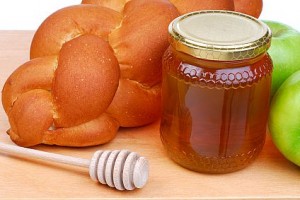Rosh Hashanah is a Hebrew term that literally means “head of the year”, and is a name given to the New Year by the Jewish calendar. This year will begin on September 28th. The entry of 5773 years will begin since the creation of the first man, known by Jews and Christians as Adam.
The start of the new year is celebrated with reflections on actions taken in the past year and better planning for the future. Furthermore, some specific foods are part of the festivities, highlighting the symbolic value expressing the identity of the Jewish group.
Traditionally, the night of Rosh Hashanah begins with the sound of the shofar, a very ancient sounding instrument considered sacred, on which people go to the synagogue to pray and after the service. Families gather around the table with a variety of preparations for the occasion. Among the foods that are part of the festive scene and their respective meanings, the following stand out:
Litter: Dip a sweet apple in honey, recite the blessing of the fruit and say a few words in Hebrew which in Portuguese translates as “May Your will renew a good and sweet year for us”.
Shallot: They must be round to be served on Rosh Hashanah, symbolizing eternity and continuity, like a circle that has no beginning or end. It is customary to eat bread with honey instead of the usual salt, from the first day of the new year until the seventh day of Sukkot (another Jewish festival related to the harvest);
Honey: for the sweet taste symbolized “Merciful Father”, this food represents the hope that the sentence decreed in the final judgment will be alleviated by divine compassion;
Fruits and special foods: sweet meats and wines are eaten a lot on this occasion to have a rich and sweet year;
Chard: perhaps because of the bitter taste it is eaten and then the following phrase is pronounced “May it be Your will that Your enemies and opponents and all those who wish us harm be removed”;
Pumpkin, mango or carrot: the word “merm” means carrot and also has the meaning of “multiply”. Therefore, carrots are eaten so that the merits are multiplied;
Sheep's head, tongue or fish head: these foods are usually eaten symbolizing that the Jewish people should be the head and not the tail;
Ingredients that should be avoided: do not eat anything seasoned with vinegar on this day to avoid having a bitter year. Nuts are avoided, as it is believed that they can cause throat clearing, which can interfere with the day's prayers;
Food is surrounded by different meanings, from cultural spheres to personal experiences. In this text, we were able to see how much religiosity is intertwined in the food celebrations at the beginning of the Jewish year. Therefore, man does not eat food, only thinking of it as a vehicle for nutrients, that is, we often eat symbolism, expressing our cultural identity.
Sources:
Rosh ha Shanah: available at http://www.anonovojudaico.org/;
Nutrinews: today begins the new Jewish year. Happy Rosh Hashanah! Available http://www.nutrinews.ws/eventos/268-hoje-comeca-o-ano-novo-judaico-feliz-rosh-hashana

